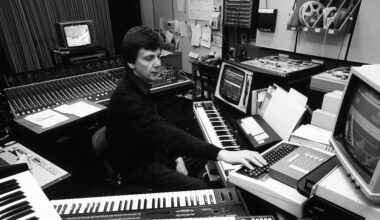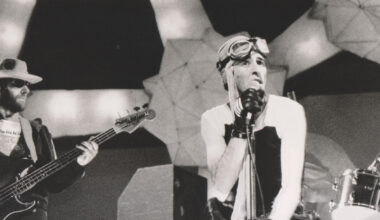‘Tresor’, the beguiling third album by Welsh artist Gwenno, is a love letter to the language and folklore of Cornwall. Celtic identity, embracing electronics and a mixing desk that once belonged to Martin Hannett all play their part in her colourful journey
Want to read more?
Sign up to Electronic Sound Premium to gain access to every post, video, special offers, and more. 100%, all you can eat, no commitment, cancel any time.
Already a premium member? Log in here






